YMO 101: The Albums
This is part one of my guide to Yellow Magic Orchestra.
Part 2: The Live Albums
Part 3: The Compilations and Remix Records
Part 4: The Solo Records
Part 5: The Pre-Cursors and Side Projects
Part 6: The Protégés, Associates and Etc.
I’ve long championed bands that very few people have heard of. This used to bug me a great deal, but by now I’ve gotten used to the fact that my musical tastes and what most people are interested in just don’t jive. But there’s one band whose complete lack of respect or notoriety in the states continues to drive me up a all; that band is Yellow Magic Orchestra.
Yellow Magic Orchestra are the greatest electronic act of all-time, and the fact that more people don’t know this is a damn shame.
Formed in the late-70s by Ryuichi Sakamoto, Yukihiro Takahashi and Haruomi Hosono, YMO are in many ways the definitive synth-pop act. They were certainly the first. With their debut album coming out in 1978, they beat the efforts of both Gary Numan and The Human League by a few months to a year. By the time they released their sophomore release a year later they had already found the perfect balance between pop-friendly radio hits and electronic experimentation, two years before producers like Giorgio Moroder and Trevor Horn were finding mainstream megasuccess by doing the same.
But for all their influence and innovation, the band is still largely ignored in the states. This is probably because most of their albums are still woefully unavailable through legal means there. Sadly, I can’t do much about that (I don’t think I have the financial clout), but I can do my best and recommend which albums to get if you happen to find yourself in a situation where they are available, legal or otherwise.
I also want to shine a light and explore many of the assorted live albums, remix compilations and albums by YMO associates and side-projects that have come out through the years, which is why this piece, like nearly everything I write on this site, will be a multi-part affair.
To start things off, I thought I’d look at the main YMO discography, the proper studio albums. This means no remix albums, no compilations and no live records. Just the core releases. The next piece will focus on live albums, followed by remix/compilations/EPs and then finally side-projects and solo releases.
If you’re looking for the TL;DR version, buy the first two albums and a greatest hits. If you want the full story, read on.
Yellow Magic Orchestra (1978)
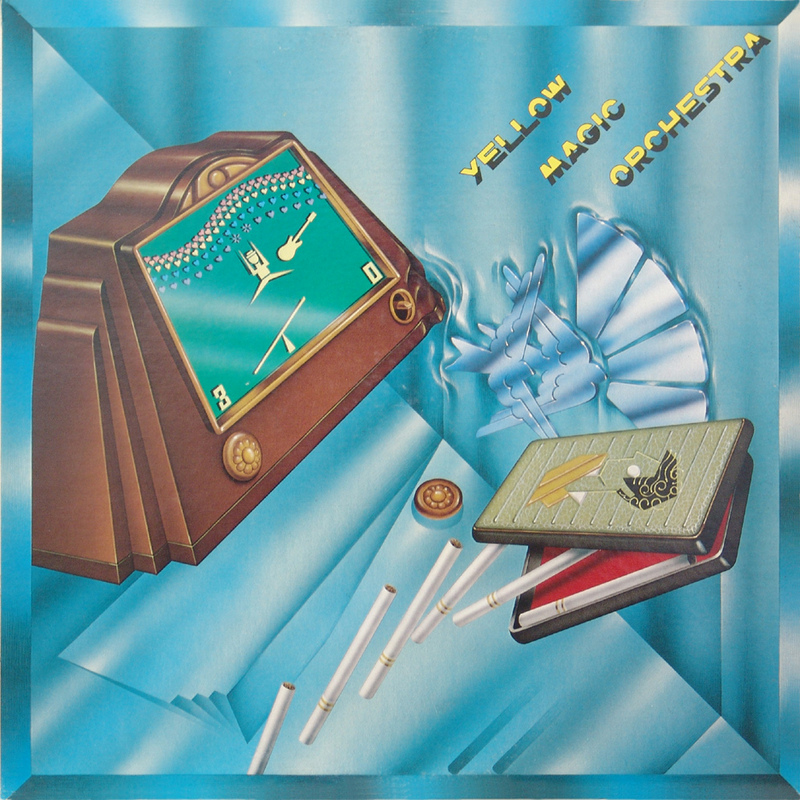
Released in 1978 and incorporating brand new electronic instruments, traditional Japanese music and a modern pop sensibility, nothing else sounded like it at the time and even today it sounds quite unique. The album was an immediate success in its native Japan, and even cracked the Top 200 in the states and England as well. Which makes that fact that most of their follow-ups never came out America to be even more of a mystery.
The album is easily one of the strongest debuts by a band ever, in any country, and is filled with tunes that became classics in Japan and staples for YMO live shows for years to come. It does sound dated today, even for a synth-pop record, as the nascent technology being used make some of the songs sounds rather sparse and limited when compared to synth-pop in the years to come. However, working within the suffocating confines of the technology available probably helped to create the album’s incredibly catchy songs. On songs like “La Femme Chionese, “Firecracker,” and “Tong Poo” less is certainly more, and the minimal music helps to accentuate the basic-yet-unforgettable melodies that make the songs the classics of synth-pop that they are. A masterpiece.
Solid State Survivor (1979)
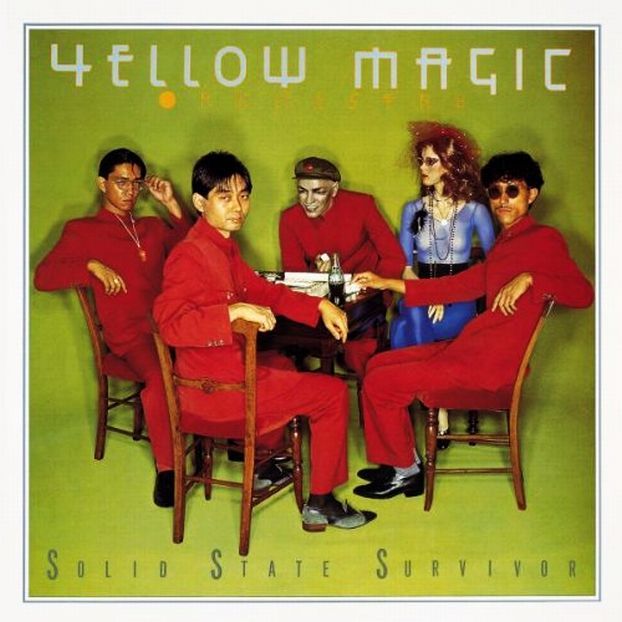
And yet this album is even better.
Solid State Survivor is simply one of the greatest electronic albums of all-time, an amazing tour-de-force serving as a showcase for a band that is absolutely on top of their game. Released just one year after their debut, it takes the sound from that album and refines to perfection. With a year to work on and perfect the use of their electronic gadgets, YMO take electronic music to places it had never been with this record – laying the foundation for minimal techno, electro and modern-day synth-pop all at once. I wish I could have been alive and aware of music when this one came out, just so I could’ve been blown away by its originality. And it’s more than just a showcase for new electronic instruments and doo-dads. The songs on here are so strong they’d work just as fine as traditional rock songs performed with acoustic instruments. It’s all in the melodies.
While there isn’t a weak track on this record, the album is mostly known for two songs, “Rydeen” and “Behind The Mask.” “Rydeen” is an advance on what the band started with “La Femme Chionese,” a nearly perfect instrumental number filled top-to-bottom with layer upon later of unforgettable synthesizer lines. While “Behind The Mask,” should be classic pop song worldwide. There’s a reason why Michael Jackson covered it.
But the other tracks are excellent as well. “Absolute Ego Dance” is my dance jam, and their cover of “Day Tripper” is a goofy, psychotic delight. The closing title track is also a standout, a fast-paced and energetic number that alternates between a frantic synthesizer riff and an absolutely beautiful counter-melody. Stunning stuff.
If you’re looking for the best jumping on point for YMO this is it. Shit, if you’re looking for a perfect record, this is it.
BGM (1980)
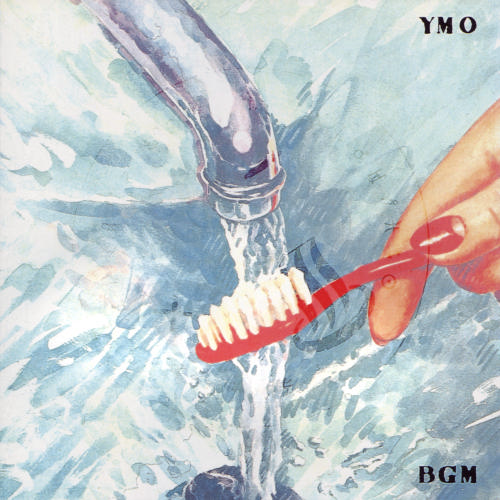
A fine album, albeit one that is largely overshadowed by the one that came before it. BGM features several great tracks; the opener “Ballet” is a lovely ballad, “Cue” is a decent pop track, and “1,000 Knives” is a great re-working of a solo Sakamoto tune.
However, it also features “Rap Phenomenon,” YMO’s take on hip-hop, and their first god awful track. And that track is sandwiched by “Music Plans” and “Happy End,” which are meandering and forgettable entirely. While there are a lot of great tracks on this record,overall it definitely lacks the hooks of Solid State Survivor, their first LP and even many of the records that succeeded it. Too much ambient filler, not enough synth-pop killer.
It’s by no means background music, and I definitely recommend it, but it shouldn’t be anyone’s first YMO record.
Technodelic (1981)

“This must be the ugliest piece of bread I’ve ever eaten.”
That’s the line that Technodelic opens with. No context given.
You tell me man.
Anyways, Technodelic is a bold departure for the group, who forgo their previous, heavily keyboard-driven and melodic sound, for a far more minimalist and rhythm-based affair. The album is largely focused on sampling and loops, and features pounding industrial beats (literally, industrial sounds made into beats) and distorted vocal loops.
Despite its reliance on the then-burgeoning sampling technology, the album holds up damn well. The fast-paced and frantic “Key” is fantastic, and the opening double-feature of “Pure Jam” and “Neue Tanz” are both quality tunes that showcase how the group was using sampling technology in bold and different ways compared to many of their contemporaries. “Neue Tanz,” which is multiple layers of samples that almost deform into nothing but noise (but in a good way) is especially unique for the time. The constant reliance on loops only really turns grating for “Seoul Music,” a powerful track lyrically that is unfortunately tainted by an endless loop of what sounds like someone saying “fuku” ad nauseum.
Regardless, this is a good record. And if you dig The Art Of Noise I expect you’ll dig this big time.
Naughty Boys (1983)
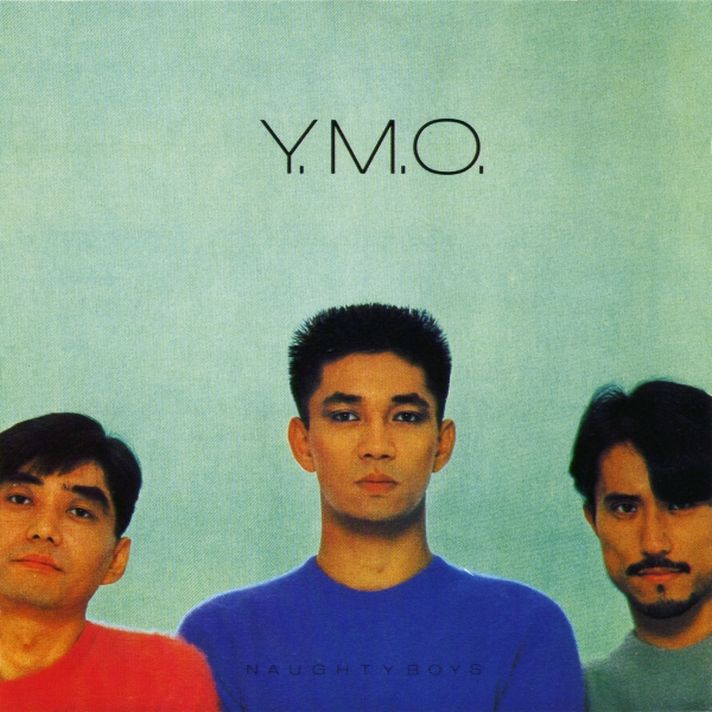
Apparently showing that the experimental sound of Technodelic was literally an experiment, Naughty Boys shows the group swinging hard back into the pop realm with a collection of some of their most radio-friendly and hook-driven songs ever.
The poppy sound may be a put-off for some, but I enjoy it. The whole thing is just so damn catchy. “Kimi Ni Mune Kyun” is a fantastic love song (so says my boyfriend, I can’t understand the all-Japanese lyrics) and almost every track on this album is just as accessible and catchy. The Takahashi songs are pop delights, and even the Hosono tunes (which are usually some of the most oblique tracks on any YMO record) are fun and lovey-dovey; “Lotus Love,” is just an endlessly charming and quirky little tune.
It may be light, but put your pretension down for a minute and enjoy the pop tunes.
Service (1983)
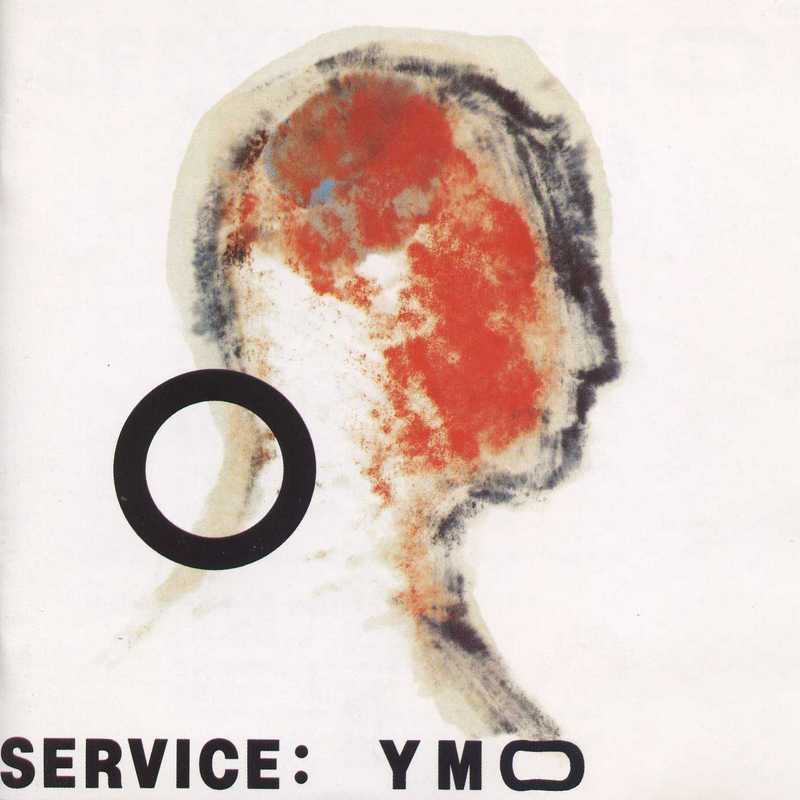
Service has three of my favorite YMO songs; “Limbo,” “Chinese Whispers,” and “You’ve Got To Help Yourself.” All were written or co-written by Yukihiro Takahashi, who was at the time really on fire as a solo artist with a string of amazing solo records (which I’ll cover later). The man was proving that he not only had a real ear for hooks, but amazing lyrical skills as well (helped largely by Brit Peter Barakan).
However, I have a very hard time recommending Service, largely because only half of it is actually a YMO record. The other half are skits by the comedy group S.E.T., which are entirely in Japanese. And even if I did speak or understand Japanese, that would probably still bug the hell out of me because the last thing I want breaking up my new wave synth-pop jam is a damn comedy bit.
There’s some amazing music here, but it’s hard to recommend as a whole.
Technodon (1993)

Ten years removed from the uneven Service, YMO reunited for Technodon, and like many reunion records, it’s not all that fans hoped it would be.
This is a heavily electronic record, more so than anything else they’ve put out before or since. I’d dare say that the title is incredibly accurate and that this is in fact a straight-up techno record. “Nanga Def?” is an acid house track more or less, and a few others have a great minimal techno vibe to them that really grow on you with repeat listens. If you like Claude Von Stroke or anything Kompact puts out then I suggest you pick up this record for songs like “Dolphincity.”
If you like, melodies, hooks and choruses though, this isn’t the album for you. Not in the least. In fact, if you’re anything like me, then you might find songs like “Be A Superman” and the insanely grating “Hi Tech Hippies” to be among the worst things YMO ever put out.
So yeah, it’s uneven. Too bad it’s their last full studio release to date. Hopefully they’ll reunite once more, they’re all still putting out amazing solo material, which I plan to cover soon.
But next time I’ll be looking at YMO’s extensive back catalog of live records, many of which can serve as better introductions to the group than their proper albums,so be on the look for that in the coming weeks.
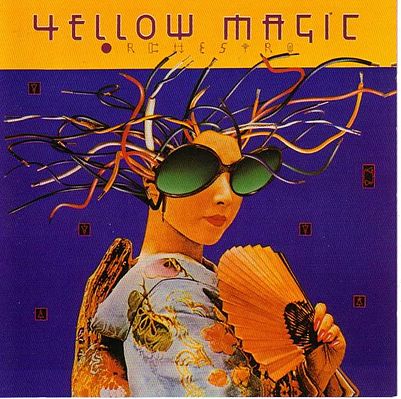
Leave a Reply